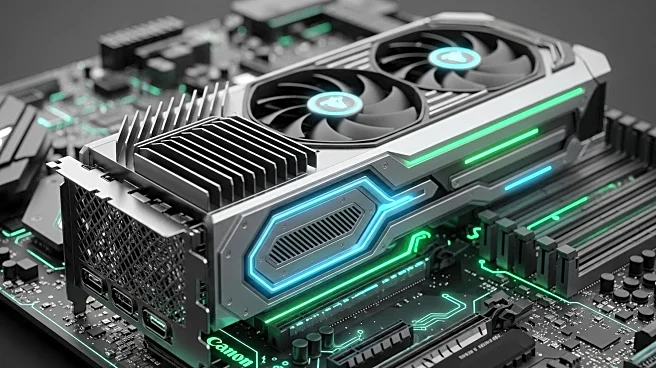What's Happening?
NVIDIA has introduced the RTX 5080 graphics card, which is powered by the new Blackwell architecture. This release is significant for gamers and content creators seeking high-performance graphics solutions. The RTX 5080 features 16GB of GDDR7 memory, providing faster access to textures and data, which is crucial for 4K gaming and complex 3D rendering. The card is available at a discounted price of $999, down from its original price of $1,264, as part of an early October Prime Day sale. The Blackwell architecture enhances GPU performance with AI-driven rendering capabilities, allowing for higher frame rates without compromising visual quality. ASUS has designed the card with SFF-Ready compatibility, making it suitable for small-form-factor PCs without sacrificing performance.
Why It's Important?
The launch of the RTX 5080 represents a significant advancement in graphics technology, particularly for the gaming and content creation industries. By incorporating the Blackwell architecture, NVIDIA is setting a new standard for GPU performance, which could influence future developments in the sector. The discounted price makes this high-end technology more accessible to a broader audience, potentially increasing its adoption among PC enthusiasts. The card's ability to fit into smaller PC builds without losing performance is a notable innovation, addressing the growing demand for compact yet powerful computing solutions. This release could also impact the competitive landscape, prompting other manufacturers to accelerate their technological advancements.
What's Next?
As the RTX 5080 becomes available, it is likely to attract significant attention from both consumers and competitors. The gaming and content creation communities may see a shift towards more demanding applications and games, leveraging the card's capabilities. Other graphics card manufacturers might respond by introducing their own high-performance solutions, potentially leading to a new wave of innovation in the industry. Additionally, the success of the RTX 5080 could influence NVIDIA's future product development strategies, focusing on further enhancing AI-driven graphics processing.










